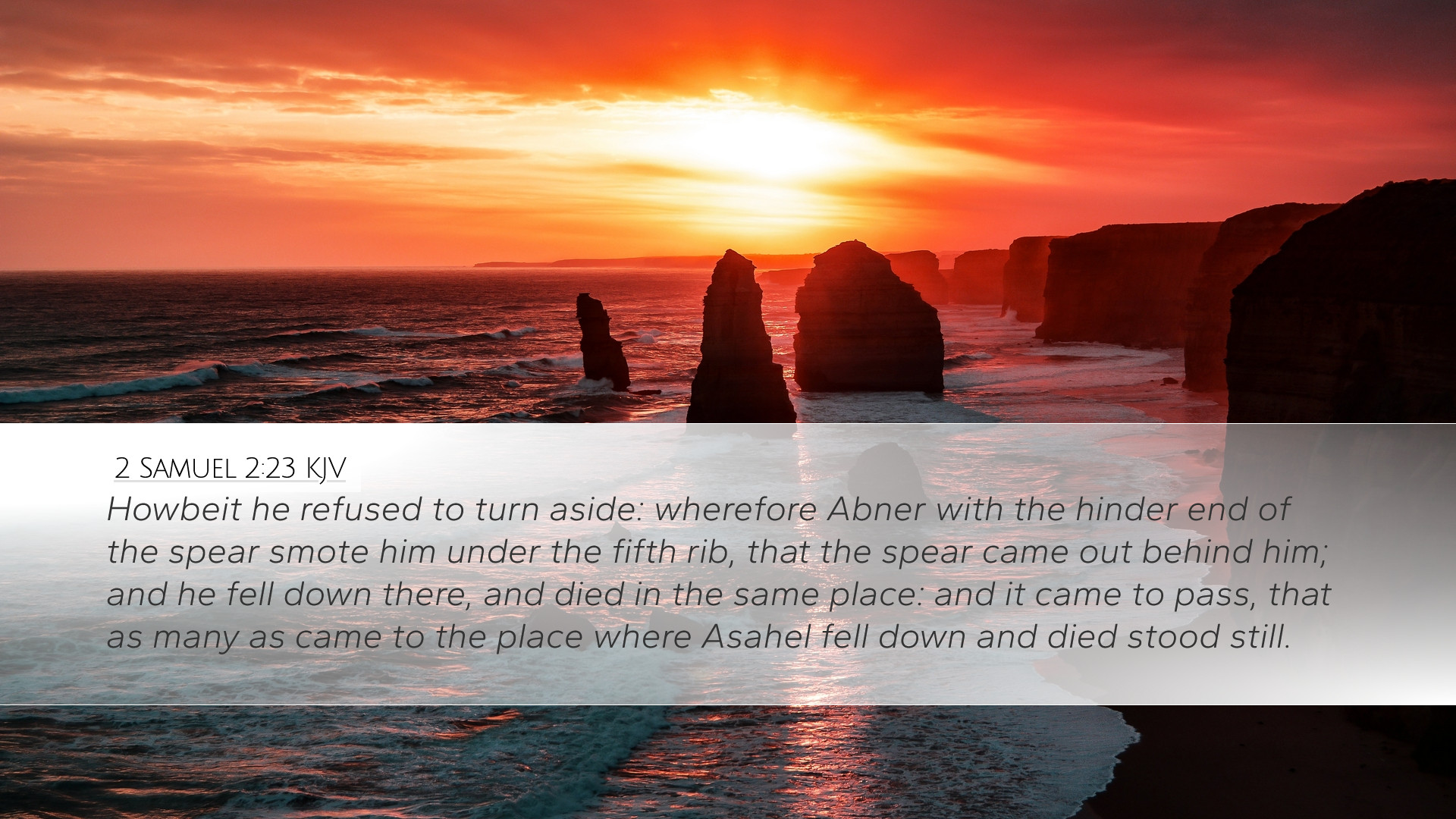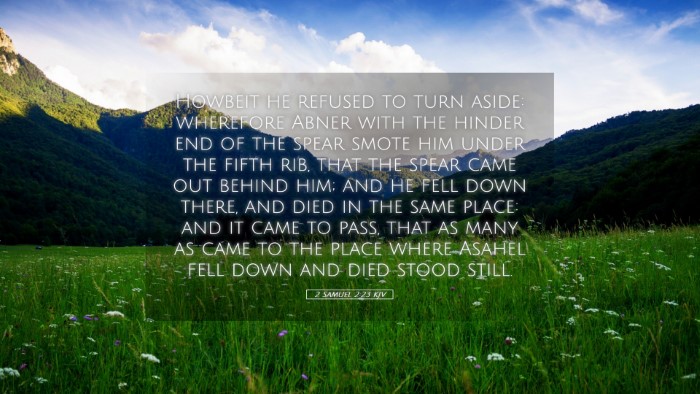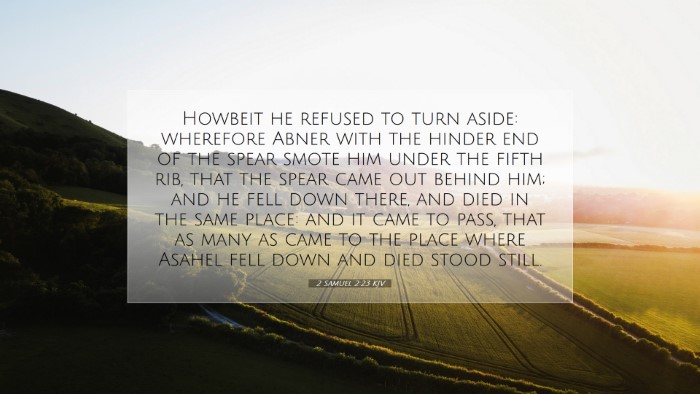Commentary on 2 Samuel 2:23
Verse Context: 2 Samuel 2:23 states, "But Abner would not turn aside from him, and killed him in the midst of the field: and he died." This verse captures a moment from the greater narrative of the power struggle during the reign of King David and the conflict with the house of Saul.
Introduction
This commentary provides an exploration of 2 Samuel 2:23 by utilizing insights from notable public domain scholars such as Matthew Henry, Albert Barnes, and Adam Clarke. The verse is a stark reminder of the brutal realities of power conflicts and the nature of human strife. It serves as a vital component in understanding the historical context of David's ascendance to the throne and the tumultuous relations among Israel's leaders.
Exegesis and Analysis
1. Historical Context
The account in 2 Samuel occurs in the midst of a civil war following the death of Saul. Abner, the commander of Saul's army, sides with Ishbosheth, Saul's son, to maintain Saul's legacy and challenge David's claim to the throne. This verse highlights the intense personal and political rivalries during this period.
2. The Characters Involved
Abner: A complex figure, Abner is portrayed as both a skilled military leader and a man caught in political loyalty. His refusal to retreat from the confrontation depicts not only his commitment to Ishbosheth but also the fierce nature of his conflicts with David’s supporters.
Asahel: The relative of David, known for his swiftness in battle, Asahel’s pursuit of Abner represents the zealous nature of David’s men, driven by familial loyalty and the promise of David’s rule.
3. The Nature of Conflict
Matthew Henry notes the tragic outcome of this confrontation, demonstrating the relentless cycle of bloodshed as men pursue power and vengeance. The idea that Abner would not turn aside highlights human obstinacy and pride to prevail in conflict, even to the point of fatality.
- A. Conflict Driven by Honor: The motivations behind their confrontation are rooted in honor and the perilous competitions of leadership.
- B. Relentless Pursuit: Asahel’s determination reflects a broader theme in the Scriptures of individuals pursuing goals with fervor, even if it leads to their demise.
4. Theological Implications
This passage raises essential theological questions about God’s sovereignty amid human conflict. Albert Barnes emphasizes the divine purpose that often unfolds through tumultuous events. Even in a world rife with strife and ambition, God's ultimate plans cannot be thwarted.
Human Agency vs. Divine Sovereignty: The interplay between faith, struggle, and the unfolding of God’s plan is pivotal. The willingness of both Abner and Asahel to engage in conflict illustrates humanity's role in actualizing divine prophecy while facing the consequences of sin and ambition.
5. Moral Lessons
Adam Clarke provides moral reflections on the significance of this account, suggesting the dangers of pride and revenge. It serves as an admonition to individuals and leaders alike to reflect on their pursuits and the potential costs of unchecked ambition.
- A. The Cost of Conflict: Engaging in pursuits without regard for consequences can lead to tragic ends.
- B. The Importance of Wisdom: Leaders are called to navigate complex situations with wisdom and discernment, avoiding prideful confrontations.
Conclusion
2 Samuel 2:23 offers a poignant episode in the broader narrative of Israel's tumultuous history and the challenges of leadership. Through the insights of Henry, Barnes, and Clarke, we understand not only the emotional and political dimensions of the conflict but also the deeper spiritual lessons regarding ambition, vengeance, and the providence of God amidst turmoil.
Pastors, theologians, and students can glean insights from this commentary to inform their teachings and studies, emphasizing the necessity of humility and godly wisdom in the face of conflict and the importance of understanding historical contexts within scripture.


